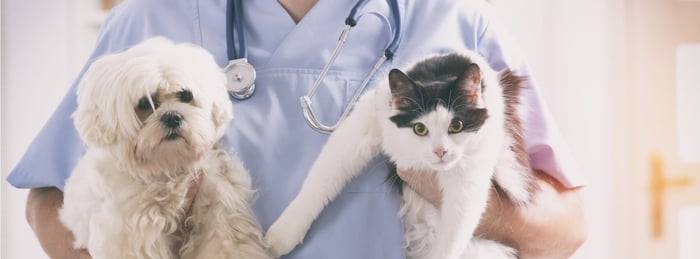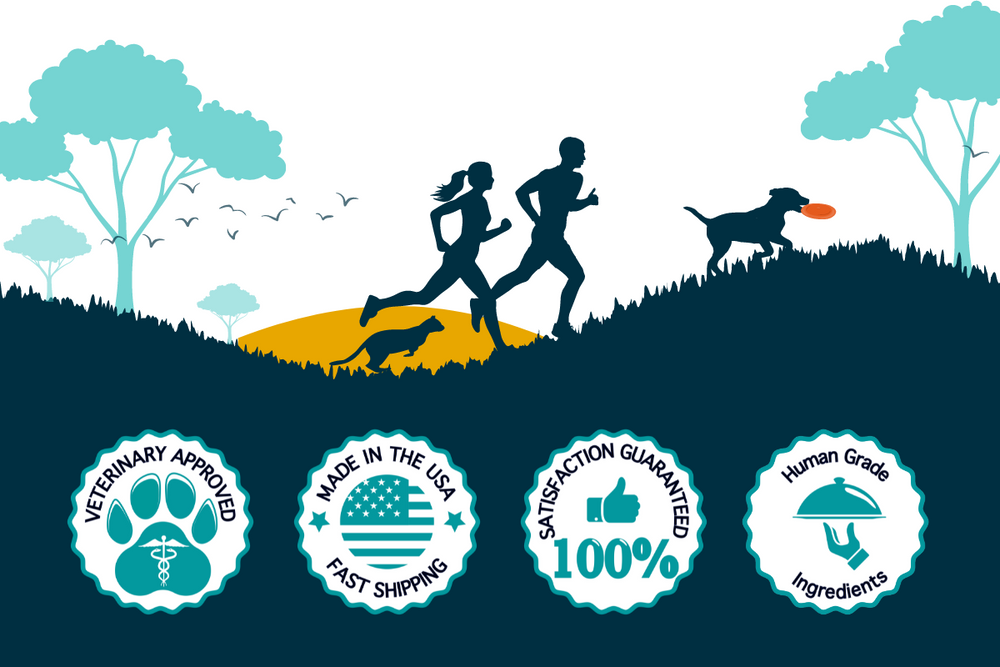National Train Your Dog Month!
January is a time for resolutions, and if you’re a dog owner, one resolution might be to finally train your dog… A well-trained dog is a pleasure to have in and around the home, but a dog that is not trained well can be not only a nuisance but also a liability.
Whether your four-legged friend needs help with basic obedience, is reactive to other dogs or people, or is ready to take the next step toward learning a K9 sport, January is the perfect time to take on the task and finally train your dog!
The first month of the year is National Train Your Dog Month, and there are many resources available to help you encourage your dog to achieve all that he can with good training.
Why Does My Dog Need to Be Trained?
Presumably, you chose to bring a dog into your home because you wanted a furry family member, protection, companionship, assistance around the house with some of your tasks, or any combination of those.
- An untrained dog is not able to reliably be any of those things. A dog that is barking or refusing to come when called is not acting like a member of the family.
- A dog that hides from visitors or, worse, growls and threatens them is not showing healthy protective instincts.
- A dog that is creating more trouble than joy is not a good companion.
More seriously, however, an untrained dog is a liability. If your dog were to bite a person or another dog, you would be responsible for their medical bills; you might even be morally responsible for a disfigurement.
Another common issue with untrained dogs is that they sometimes cause damage in the home, from a chewed-up shoe to a destroyed couch. None of this sounds very fun!
A trained dog, however, can bring you happiness and love for 10 or more years. They can be a safe playmate for your children, can bring you your slippers at the end of the day, and can be trusted not to drag you down the street because they saw a rabbit dart around the corner. You can enjoy leisurely walks and fun outings with your well-trained pal.
Resources to Help You Train Your Dog
- Training your dog can be done on your own or with the help of a professional trainer. Word of mouth is probably the best way to find a good trainer. Check out your local social media pages and ask your veterinarian for a referral. A good trainer will command your dog’s respect without scaring them, and they will also work with you and your family to teach you how to interact with your dog to make training easier.
- If your dog needs help with basic obedience, you can also try signing up for a group class. These are often held at pet supply stores. For example, PetSmart is a store that holds training classes for puppies, adult dogs, and even dogs that are on the path to becoming therapy animals. If you would prefer to train your dog on your own, consider the AKC GoodDog! Calling the hotline will connect you with a professional trainer who will offer live support over the phone.
- Susan Garrett—our friend and one of the most well-respected dog trainers out there—emphasizes the importance of “recall,” especially with regard to safety and basic dog training. Her website also includes some of the best crate game material ever published, which is particularly helpful for those with puppies. Additionally, Zak George is a trainer who puts out free videos on just about any dog misbehavior you can think of. Check out his YouTube channel to learn more about dog behavior and how you can shape your dog with calm, positive training methods.
 Susan Garrett at the 20th Anniversary Agility Camp
Susan Garrett at the 20th Anniversary Agility Camp- There are also a wide variety of books on the market for people who need help training their dogs. One is 101 Dog Tricks: Step-by-step Activities to Engage, Challenge, and Bond with Your Dog. This book focuses on not only basic obedience but also tricks that can help you communicate better with your furry friend. A dog that knows tricks is a dog that is able to be distracted and diverted toward better behavior when you catch them doing something they shouldn’t. Another good book is Training the Best Dog Ever: A 5-Week Program Using the Power of Positive Reinforcement. This book will walk you through a program that will turn your whirling dervish into a well-mannered pup.
Help for Dogs with Special Needs
Not all dogs are easily trained. Some have been abused or neglected in the past and might not have the social skills needed for a training class or a do-it-yourself program that you read about in a book.
If your dog is reactive, meaning that they jump, lunge, or growl at people, cars, bicycles, or other moving creatures or objects, you might benefit from a program called Care for Reactive Dogs.
This is a system that uses desensitization and requires a lot of patience, but it can truly change your dog’s life. Additionally, a veterinary behaviorist is a veterinarian who specializes in behavioral issues.
The American College of Veterinary Behaviorists (ACVB) website has some resources that can help you if you need intensive help with your special-needs dog. Choosing to train your dog is helpful whether or not your canine companion has actual behavioral issues. It is a great way for the two of you to learn to communicate better and to fully enjoy the years that you will have as best friends.









